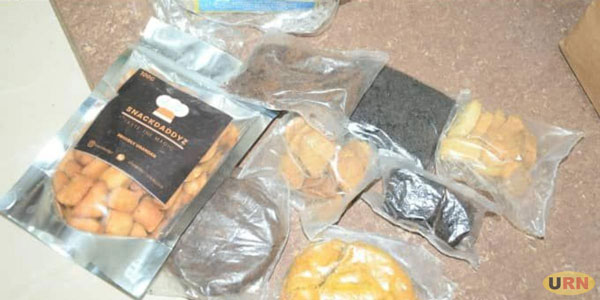
Kampala, Uganda | THE INDEPENDENT | As the third term commences, the police force has warned school administrators and parents regarding the increasing presence of student gangs. According to the police spokesperson, Fred Enanga, several children have fallen victim to the gangs in schools but have chosen to remain silent.
Enanga revealed that some children, during the holiday break, shared information with police officers, revealing that these school gangs have compelled them to get involved in drug abuse and, at times, even criminal activities. The gangs often use coercion, such as bullying or assault, to recruit students, which forces them to join the gangs for security and protection within the school environment.
Enanga points out that the gangs have distinct dress codes that may not be easily noticeable to school administrators and parents. “Children join gangs when they have low self-esteem, lack of identity, need to feel important, seek companionship, looking for security, lack positive alternative activities, parental involvement and succumb to peer pressure,” Enanga said.
Moses Ntenga, a child specialist and the founder of Joy for Children, an NGO advocating for children’s rights, adds that forming and joining school gangs can also be driven by factors such as a lack of parental love, poor academic performance, and a disinterest in education.
“Young people who do not like school, those whose school performance is poor, and those who are not committed to education are more likely to engage in a variety of problem behavior. They are more likely than other youths to become involved with gangs,” Ntenga said.
Ntenga’s perspective aligns with Enanga’s statement that some children have admitted they felt compelled to join drug gangs because they believed it would improve their academic performance. Thus, comments, insults, and ridicule from peers or parents about their poor academic performance can motivate some children to make this unfortunate choice.
The police have identified several signs that parents, guardians, and school administrators can look out for to identify children who have joined or formed gangs. These signs include changes in clothing style or color, withdrawal from family, declining grades, poor attendance in school, unexplained sources of money or new possessions, gang-affiliated tattoos, and the use of nicknames.
“Parents are encouraged to spend time with their children, do things with them, and attend functions in which they are involved. Respect your children’s feelings and attitudes and help them develop a strong sense of self-esteem,” Enanga said. During the previous term, Senior four and six students from Old Kampala Secondary School were arrested by the police in Nansana during a smoking festival.
Local residents reported drug smells and loud music emanating from a house, leading to the police’s intervention. However, the head teacher of Old Kampala SS, Williams Ssuuna, blamed the police for not taking swift action to prevent the students’ smoking festival despite being alerted during the daytime by some of the students.
Ntenga believes that joining gangs is sometimes seen as a means of connecting with peers, especially among adolescents. He also notes that children from violent families that create feelings of insecurity can be forced to join gangs. “Some children and adolescents are motivated to join a gang for a sense of connection or to define a new sense of who they are. Other children are motivated by peer pressure, poor parental supervision, absence of either or both parents, and violent family environments,” Ntenga said.
Last year, in Kira Division, Kira Municipality, police arrested four men who were supplying drugs to students, deceiving them into believing that these substances would help them excel in exams. The drugs were cleverly disguised as cookies, biscuits, and sweets.
***
URN
 The Independent Uganda: You get the Truth we Pay the Price
The Independent Uganda: You get the Truth we Pay the Price



